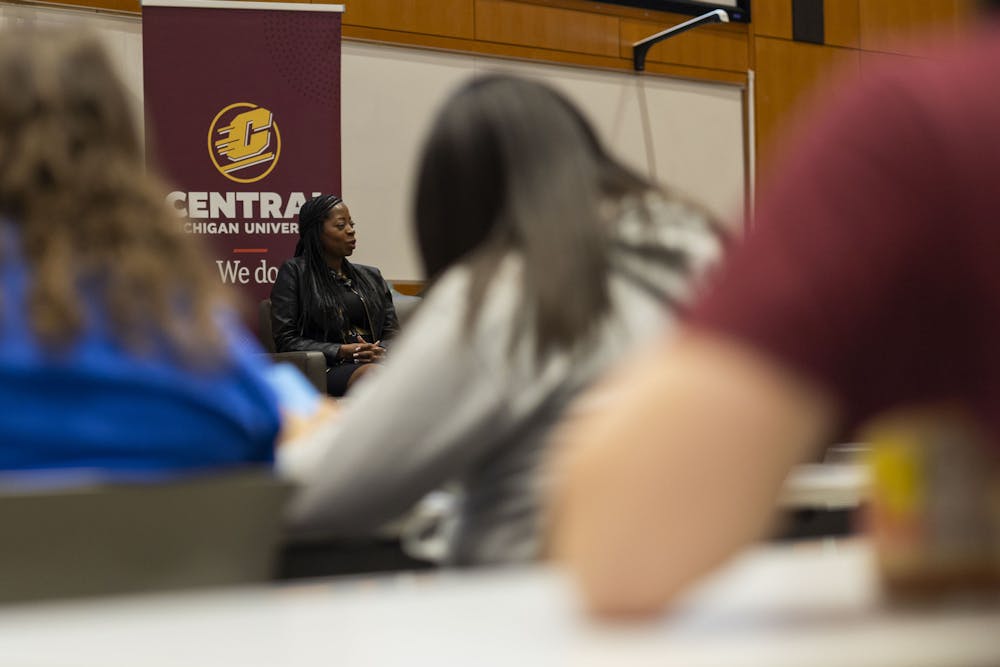'The most innovative generation around'

How can Artificial Intelligence be useful in academics, art industry and legal world? Provost Nancy Mathews and Angle Bush discussed the impacts of AI and the importance of diversity and individuality within it on Feb. 21.
Bush is a Central Michigan University alumna and the founder of Black Women in A.I., a company who's focus is to "Educate, Engage, Embrace, and Empower Black Women in the Artificial Intelligence industry."
Bush spoke about how her company has notable partnerships with tech companies like NVIDIA and universities such as the University of Houston.
"Black women are coming back to tech," she said. "They want to learn more and go beyond ... and that's the importance of this organization."
The provost asked Bush a variety of questions on the topic, but three of the biggest categories were diversity efforts, ethics surrounding AI and how AI can benefit schools.
When it comes to diversity, Bush said that it is extremely important to know how data was collected, and that they should avoid "dirty data," or data that lacks inclusivity and isn't thoroughly checked for errors numerically or in bias.
"We have to make sure when we're designing the system that there are diverse forces not just in the room... but the people putting it together," she said. "You're adding not only (diverse) images, but people themselves and their diverse perspectives to the project."
When Mathews and students asked questions in regards to the ethics of AI, Bush stressed the importance of keeping the AI industry human-centered.
"There is a necessity to keep the humanities involved," she said. "There needs to be a human there to say 'That's not right,' to question things and bring ethics into it."
Bush said the biggest ethical challenge of AI is surveillance and privacy. She used examples of AI voice generation and software programs that can now generate realistic videos of whatever prompt people type in.
"Unfortunately on social media, we believe first and ask questions later," she said. "There are currently no rules or regulations ... We have to be careful and we have to be diligent."
Finally, Bush said educators in primary and secondary education should embrace AI as it's not going anywhere.
"Even if a paper is written by AI ... can you understand the material?" she said. "We can't stop students using AI, but we can ask how to make it a learning tool for both sides."
She also talked about how universities could use AI as a gap between academia and the workforce. She said that higher education brings research, while industries and professions bring real-world application.
"To me, that's a match made in heaven," she said. "If CMU creates that bridge... Students are going to change the world. This generation thinks differently, and that's a good thing. I think they're the most innovative generation around, and I can't wait to see what they do."
Bush ended the conversation by encouraging the students of today to take action, both in the realm of AI education and in their personal lives.
"It may not seem important right now, but trust me," she said. "It's all around you... Take every opportunity in your life, and you will see a full circle moment like I am (returning to her alma mater) today."






